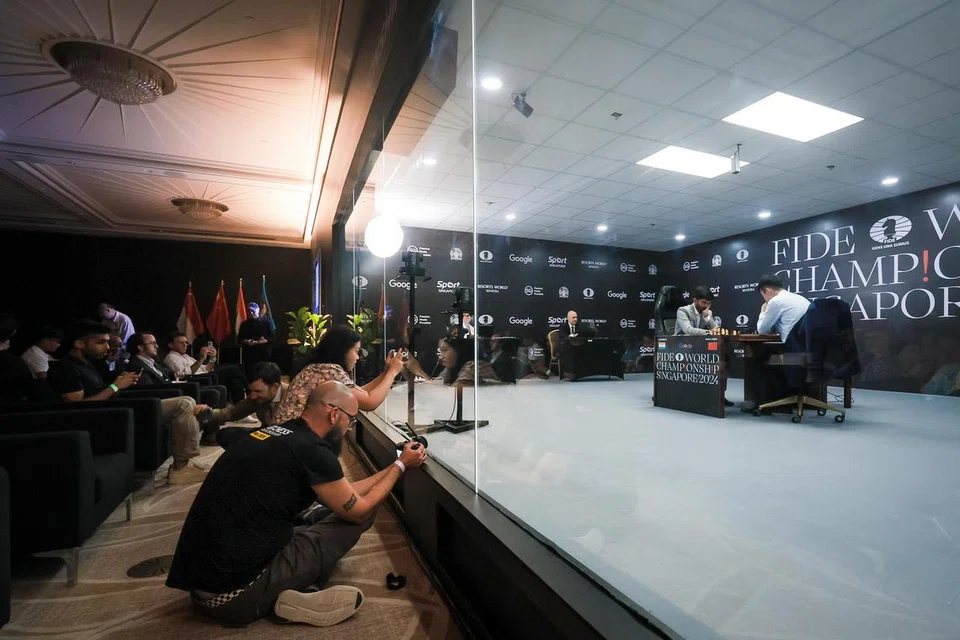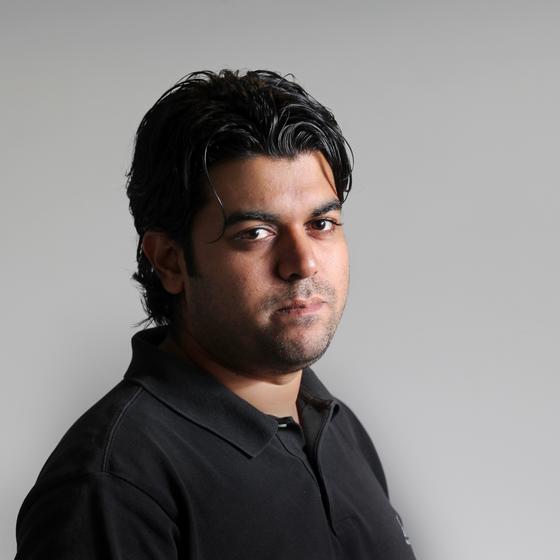The last time I was shushed in a room this quiet, it was in the library back at St Andrews Secondary School. I couldn’t have been more than 15 years old.
The discussion I was having with Sanjay Tiwari, an ex-schoolmate who I had bumped into inside the dimly lit ballroom at the Equarius Hotel Sentosa began as a lighthearted one.
I opined, rather facetiously, that a sport isn’t really a sport unless the athlete breaks out in some measure of sweat. “There has to be some physical exertion,” I argued. “Chess is a game.”
Sanjay, who was a C’ Division (Under-14) chess finalist back in the day, wasn’t having any of it: “Chess is both a game and a sport. And it is more physically demanding than you think.”
“Shhhh” interrupted a volunteer usher with his finger pressed on his lips.
Not that Ding Liren or Gukesh Dommaraju could hear us inside their one-way glass panel on a dais some 10m in front of us. But okay, point taken.
Imagine being at Anfield and being shushed for speaking too loud during a corner kick. Or at Madison Square Garden before a free throw. Here’s another reason why chess isn’t a sport, I whisper to Sanjay – the players prefer that spectators aren’t present.
Speaking of in absentia, where were the Chinese press and supporters?
Inside a full ballroom of 400 people, the absence of a Chinese flag or fan was salient. The majority of spectators were either local or Indian – a partisan show of support for 18-year-old Gukesh, the youngest ever challenger for the title.
Perhaps if this was football or basketball, there would have been more Chinese supporters in and around Sentosa.
Still, Ding, 32, is the reigning champion. Surely his brethren – from a country of 1.4 billion people no less – might have found it fitting to travel to the Lion City and provide him some in-person encouragement?
After all, this was chess at the highest level. And featuring the two most populous countries in the world. This was Game 2. China had won Game 1 the day before.
All eyes were glued – with mouths shut – on the two grandmasters in front of them as Ding vexed over his seventh move against his challenger.
Suddenly, a few sections of the crowd gasped in unison. Gukesh had made an unexpected move with his black knight. Not that it seemed to faze Ding, who stayed frozen in his seat. He had previously left his seat a few times in between moves.
Though he is the world champion, Ding was regarded as the underdog coming into the best-of-14-match, given his poor form over the past few months. In fact, his Game 1 victory was his first classical win in 304 days and 28 games.
Today, however, after 23 moves which lasted a tense three hours, both players settled on a draw by threefold repetition (a player may claim a draw if the same position occurs three times during the game).
Game 3 on Wednesday went to Gukesh to even the overall score 1.5 to 1.5. The series will continue till Dec 13, or when one player reaches 7.5 games.
“Why did Ding leave his seat so many times during the match?” I asked Sanjay as everyone stood up to applaud the two players as they exited the stage in opposite directions.
“To go to his private lounge,” Sanjay explained. “Players are allowed to do so while waiting for their opponent’s move.”
“Ok, now it’s definitely not a sport,” I reply.


